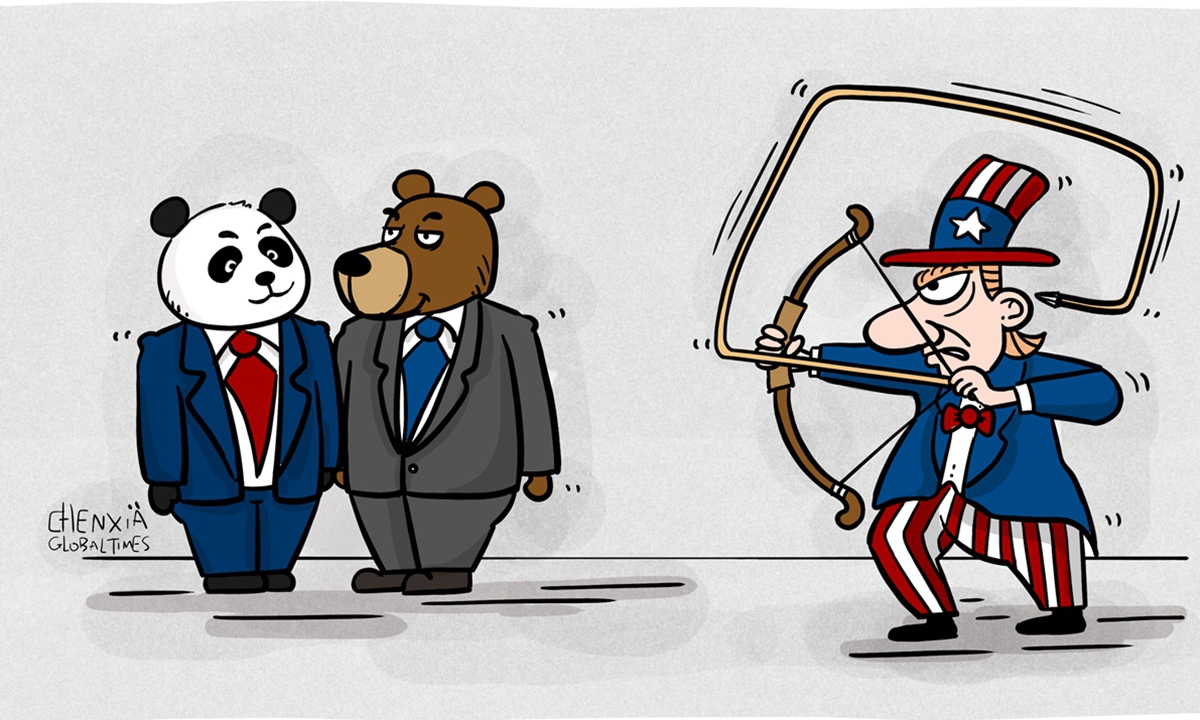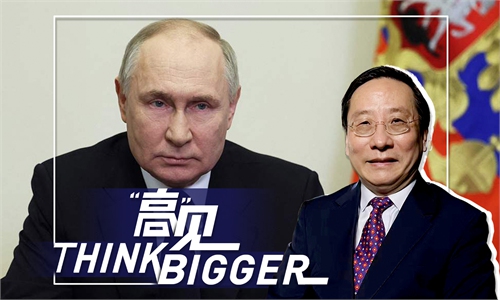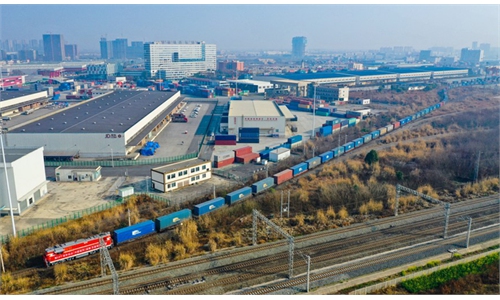
Illustration: Chen Xia/GT
Russian Foreign Minister Sergey Lavrov arrived in Beijing for an official visit on Monday. With escalating Western sanctions on Russia, how China-Russia economic and trade cooperation will be affected has become a topic of concern.Against this backdrop, Lavrov's latest visit to China is being closely watched by observers with great interest. The visit comes at a time when economic and trade cooperation between China and Russia is at a critical juncture.
On the one hand, Moscow has accelerated the shift of its economic cooperation focus to the Asia-Pacific market, with China emerging as a key player. The scale and quality of China-Russia economic exchanges are steadily improving, covering areas like trade, industry, agriculture, logistics and infrastructure.
On the other hand, the US and its European allies have been ramping up sanctions on Russia, which have exerted tremendous pressure on the Russian economy and led to unprecedented challenges to the economic and trade relationship between Russia and China.
It can be anticipated that China-Russia trade will face more strains than ever under the Western pressure. For instance, even during a visit to China, US Treasury Secretary Janet Yellen still warned on Saturday that there will be "significant consequences" for China if its companies support Russia, Politico reported.
Western pressure on China over its Russia trade is not just due to the Russia-Ukraine conflict, but also due to strategic goals, such as Washington's aim of targeting and containing China by means of sanctions. More and more signs show that it is actually a tactic of the West to point a finger at normal trade between China and Russia, which aims to use the opportunity to hurt Chinese companies and hinder the development of Chinese manufacturing and businesses.
However, Chinese Foreign Ministry spokesperson Mao Ning said in a press conference in February that normal trade and economic cooperation between China and Russia is not targeted at any third party or subject to any interference by any third party.
China firmly opposes illegal unilateral sanctions against Chinese companies and will take necessary measures to resolutely protect the legitimate rights and interests of Chinese companies, Mao said.
China remains steadfast in its position on this matter. Like many other developing countries and emerging economies, China is committed to pursuing its own interests while also adhering to international norms in economic and trade cooperation. Despite external pressures, China's willingness to continue economic and trade cooperation with Russia will not change.
China will not compromise its basic principles or its stance due to the long-arm jurisdiction of the US, nor will it become a follower of any other country's strategy. Chinese companies may take precautions to mitigate risks, but their willingness to cooperate and adhere to those principles will remain unwavering.
The deepening cooperation between China and Russia is a strong manifestation of the resilience of their trade, which is unlikely to be affected by Western sanctions in the long run. This year marks the 75th anniversary of the establishment of diplomatic relations between China and Russia, with bilateral trade flourishing at a record pace. In 2023, China-Russia trade reached $240.11 billion, up 26.3 percent compared with the previous year.
Also, about 92 percent of trade settlements between Russia and China are now conducted in Russian rubles and the yuan, Russian Deputy Prime Minister Alexey Overchuk said at the Boao Forum for Asia last month.
Such developments show the strong vitality and potential of China-Russia economic cooperation, which enjoys a high degree of trade complementarities, political mutual trust and diversified areas for cooperation. All these factors together constitute a strong foundation for bilateral trade, enabling it to withstand challenges amid the complex international environment.



